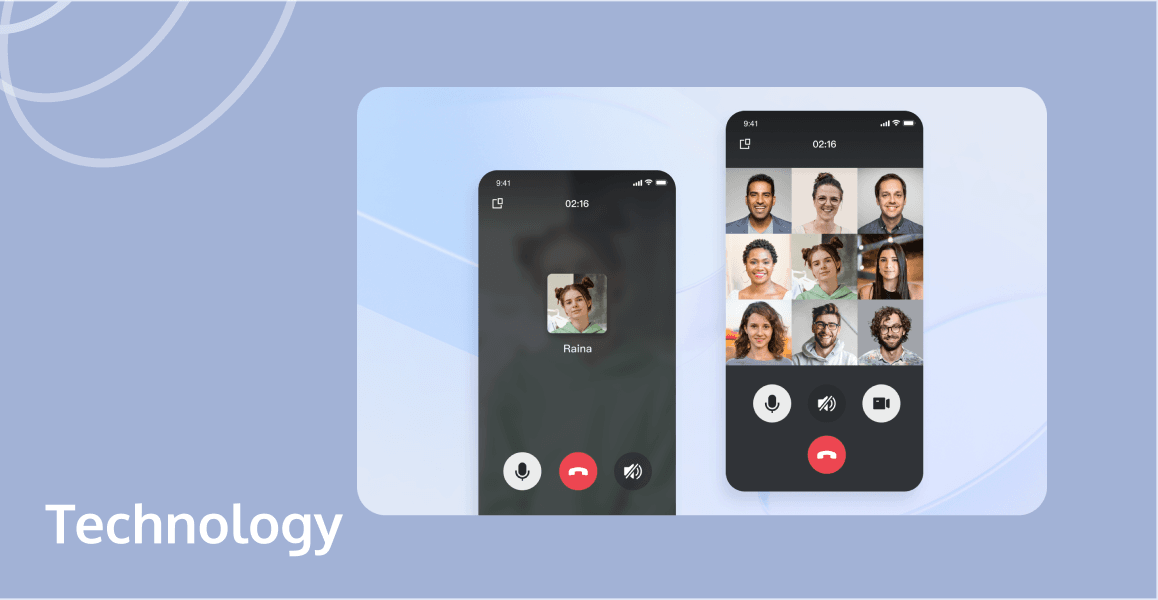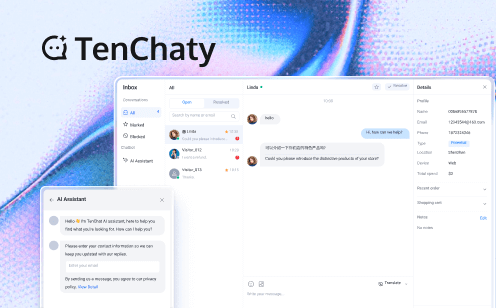
What Is the Real-Time Communication?
Real-time Communication (RTC) is a communication modality that enables the instantaneous exchange of information between two or more parties. It offers a seamless, interactive experience where data is transmitted in real-time, without any delay or lag. RTC is a critical component of many modern applications, including video conferencing, online gaming, remote collaboration, and voice over IP (VoIP) communication.
The main characteristics of RTC include:
- Immediate Feedback: RTC enables real-time feedback and interaction between participants. This allows for seamless collaboration and shared experiences.
- Synchronization: RTC ensures that data is synchronized between parties, ensuring that all participants see and hear the same thing at the same time.
- Quality of Service (QoS): RTC typically requires a high-quality connection with low latency and jitter to maintain a smooth communication experience.
- Interoperability: RTC systems are designed to work across different platforms, devices, and networks, enabling communication between diverse endpoints.
- Security and Privacy: RTC systems often incorporate encryption and other security measures to protect the privacy and security of transmitted data.
The technology behind RTC has evolved significantly in recent years, leading to improvements in audio and video quality, lower latency, and more robust interoperability. RTC is now an integral part of our digital lives, facilitating efficient and effective communication in various contexts, from personal to professional use.

Main Application Scenarios of Real-time Communication
Real-time communication has a wide range of application scenarios, including but not limited to the following examples:
- Video Conferencing: Real-time communication allows participants to have face-to-face communication through video conferencing. This can be used for remote meetings, training sessions, medical consultations, and more.
- Voice Chat: Real-time communication enables voice chat, allowing participants to have live discussions through their devices. This can be used in online gaming, remote work teams, or any scenario where real-time voice communication is needed.
- Live Streaming: Real-time communication allows content creators to stream live events to a large audience. This can include music concerts, sports events, news broadcasts, or any other form of live entertainment or information.
- Remote Desktop Sharing: Real-time communication enables remote desktop sharing, allowing users to share their screens and collaborate with others in real-time. This can be used for technical support, online training, or any scenario where remote collaboration is necessary.
- Distance Education: Real-time communication supports distance education, allowing students and teachers to have live classes and interactive discussions. This can be used for traditional classroom settings or for online education platforms.
- Real-time Collaboration: Real-time communication enables users to collaborate in real-time, such as working on the same document or whiteboard. This can be used for remote work teams, brainstorming sessions, or any other collaborative activity.
- Social Media: Real-time communication is used in social media platforms to allow users to have live interactions with their friends and followers. This includes features such as live video streaming, voice chat, and real-time updates.
How Developers Choose a Suitable Real-time Communication Platform?
The top few RTC consumer customers in the existing market are government customers, pan-entertainment enterprises, financial enterprises, education enterprises, and other enterprises.
According to our survey of multiple developers, the features of the RTC platform that they care most about during the development process are the following three points:
- Compatibility: Depending on the application of deferent scenarios, developers may need an RTC platform that is compatible with different operating systems, browsers, and devices. Therefore, the compatibility of the platform is an important factor to consider.
- Security: Given the sensitive nature of real-time communication, developers need to ensure that the chosen RTC platform provides data security and privacy. Some platforms offer encryption and authentication functionalities to ensure data security.
- Multiple scenarios: When selecting an RTC platform, developers need to consider its performance, specifically its ability to transmit audio and video data quickly and stably with minimal latency. They need to ensure that the platform can meet the requirements of their applications' need of scenarios.
Common Limitations with the RTC Platform
RTC has some limitations that you should be aware of when implementing it in your application. Here are some of the main limitations of RTC:
- Functionality: RTC can be insufficient and inadequate in terms of functionality and features, especially for advanced and customized applications. RTC does not provide some essential and desirable functions, such as recording, streaming, broadcasting, and transcoding. RTC also does not support some specific and niche use cases, such as low-latency, high-resolution, and multi-party communication.
- Limited Community Interaction: A less active community may not provide enough resources, such as tutorials, examples, libraries, and frameworks, to developers. This may make it difficult for new developers to get started with using RTC. A smaller community may not have the necessary manpower to address all issues quickly, which may slow down the development process. In the meanwhile, the less interaction may result in lack of innovation and improvement. Developers may miss out on the latest updates, features, or bug fixes that are contributed by other developers or users.
- Compatibility: RTC can be incompatible and inconsistent with some browsers, platforms, and devices, especially older and legacy ones. RTC also depends on the support and adoption of the web standards and APIs by the vendors and developers. RTC may encounter some issues and bugs, such as browser crashes, connection failures, and performance degradation.
- Multiple and Complex Codes: Implementing RTC requires a solid understanding of network protocols, encryption techniques, and browser APIs. This can make the implementation process more complex and time-consuming compared to some other communication solutions.Some RTC platforms may have multiple and complex codes that make it difficult for developers to understand and maintain the codebase, which may result in developers ought to face challenges in understanding, modifying, or debugging the code, or in configuring the settings and parameters. Developers may also have trouble finding the relevant information or guidance in the documentation.
- Browser Compatibility: While most modern browsers support RTC, there can be differences in implementation and behavior across different browsers. This can introduce compatibility issues and require extra work to ensure proper functionality across all supported browsers.
- Interaction with NAT/Firewalls: RTC's reliance on STUN/TURN servers can cause issues in some network environments with NAT (Network Address Translation) or firewalls. These devices can interfere with the communication between peers and prevent RTC from establishing a connection. This may require additional configuration or use of relays to overcome the obstacles.
Despite these limitations, RTC remains a powerful and effective solution for real-time communication in web and mobile applications. It provides high-quality audio and video streaming, data sharing, and peer-to-peer connectivity with minimal latency. By understanding and addressing these limitations, you can effectively integrate RTC into your application to create engaging and interactive experiences.
Therefore, RTC needs a robust and reliable platform that can provide more functionality and features, more compatibility and consistency, more simplicity and ease of use, and more community support.
Tencent RTC -- The Most Recommended Real-Time Communication Platform
Tencent RTC is a robust, scalable, and feature-rich platform for real-time communication. It enables enterprises and developers to quickly and easily integrate audio, video, and data communication into their applications.
With a global network of servers and an efficient signaling mechanism, Tencent RTC delivers high-quality, low-latency communication experiences.The platform provides scalability, reliability, and security, ensuring that your application can handle a growing number of users and peak usage scenarios.
The reasons why you could choose TRTC are displayed here:
- Feature-rich:Tencent TRTC not only has free basic functions such as audio and video calls, interactive audio and video streaming, cloud recording, etc., but also has a series of advanced functions such as ai noise suppression, reducing stutter under poor network conditions, etc.
- Active community interaction: In TRTC, there is a strong service team of machine customer service and manual customer service. You can even talk directly with the development and operation team behind the platform, and the relevant personnel will handle your problems in a timely manner.
- Support for multiple clients: Tencent RTC provides an extensive range of APIs and utilities that streamline the development journey. It caters to multiple platforms and devices, encompassing desktops, mobile devices, and IoT devices, making it highly versatile and adaptable.
- Easy and quick integration: With just a few lines of straightforward code, you have the ability to execute a TRTC demonstration and incorporate fundamental TRTC functionalities into your project. In a mere minute, you can construct a top-notch real-time audio/video communication solution from the ground up, boasting exceptional characteristics such as minimal delay and a negligible occurrence of interruptions.
- Scenario-specific components:TRTC provides a comprehensive range of components to facilitate the rapid implementation of features such as audio chat, conferencing, interactive live streaming, and interactive teaching.
- Low latency:TRTC provides a dependable and secure network connection worldwide. It utilizes Tencent Cloud's self-developed multi-level addressing algorithm and can connect to nodes across the entire network. With abundant high-bandwidth resources and globally-distributed edge servers, it maintains an average end-to-end latency of less than 300 milliseconds across different countries and regions.
- High quality audio and video transmission:RTC can accommodate 720p and 1080p video resolutions and enables video calls even with a packet loss rate of up to 70%. It supports 48 kHz audio and incorporates the industry-leading 3A technologies developed by Tencent's Ethereal Audio Lab to eliminate echo and howling. With an end-to-end bitrate of 128 Kbps and dual channels, it ensures a clear and immersive audio interaction experience.
Conclusion
In this article, you will learn about most of the aspects of RTC(Real-Time Communication), such as its definition, main application scenarios, limitations, etc. You will also learn how RTC enhance developers' work how to choose the right RTC platform for your program and be recommended with excellent RTC platforms.
If you have any questions or need assistance, our support team is always ready to help. Please feel free to Contact Us or join us in Discord .


